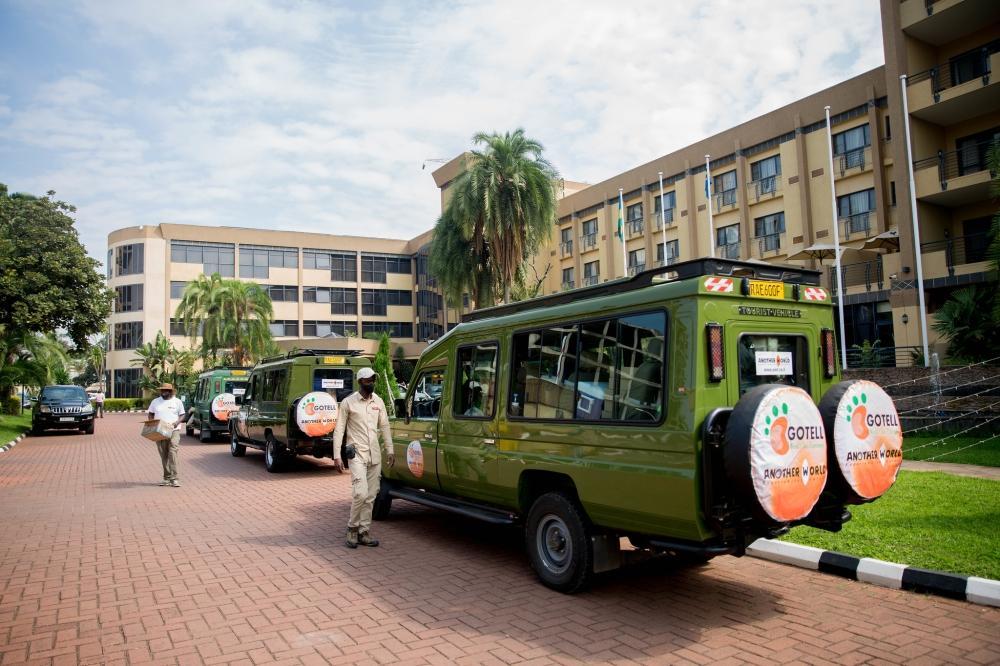Africa-Press – Rwanda. Travellers who visited Rwanda from various parts of the world spent $579.5 million on goods and services in 2024, compared to $563.8 million in 2023, reflecting a modest year-on-year increase.
This is according to the latest Travel Expenditure Survey by the National Institute of Statistics Rwanda (NISR).
The survey summarises how spending on travel services (i.e. visitors’ expenditure within Rwanda) has changed over the years and across different quarters.
Travellers in 2024 mostly spent on accommodation, food and beverages, transportation, shopping, entertainment, sightseeing, education and health-related services, and other expenses, excluding international transportation costs.
Travellers from North America, Asia, the East African Community (EAC), Europe, and the rest of Africa were the top spenders.
Here’s how travelers spent in 2024.
Holiday expenditures
In the first and second quarters of 2024, visitors spent $130.2 million on holidays, accounting for 48 per cent of total travel spending. In the third and fourth quarters, holiday travelers made up 44.6 per cent of overall expenditure.
Holiday-related services generated $59.9 million, $60.3 million, $103.9 million, and $56.2 million in Q1, Q2, Q3, and Q4, respectively.
Elisee Munyanfura, a tour guide at Volcanoes National Park, said the findings reflect what they regularly observe on the ground – that many visitors enjoy shopping for local crafts to take home.
“These include decorative pieces made from bamboo and wood, along with woven items like baskets and gorilla-themed souvenirs. It’s a great business opportunity for the local community,” he said.
Visiting friends, relatives
The survey shows that travellers visiting friends and relatives (VFR) contributed 28.1 per cent of total travel spending in the third and fourth quarters.
VFR travellers spent $34.2 million, $37.2 million, $30.8 million, and $35.5 million in the first, second, third, and fourth quarters of 2024, respectively.
Janvier Mbabazi, a tour consultant and owner of Crest Adventures, said that visitors to Rwanda tend tospend on cultural tourism services and on offerings provided by hotels, restaurants, and bars.
“They also engage in activities such as weaving, traditional dancing, banana beer brewing, organic farming, cooking, village tours, milking, and excursions around Lakes Burera and Ruhondo,” he said.
“These are all paid experiences. This should guide unemployed local youth towards income-generating opportunities,” he added.
Business travellers
Spending by business travellers contributed 14.1 per cent of total visitor expenditure in the third and fourth quarters.
In the first and second quarters, business visitors spent $46.7 million.
From the visitors’ expenditures, business-related services generated $19.7 million in the first quarter, $28.7 million in the second, $30.4 million in the third, and $17.8 million in the fourth quarter.
Education services
Education services generated $9.2 million, $7.6 million, $21.4 million, and $13.2 million in the first, second, third, and fourth quarters of 2024, respectively.
Visitors spent a total of $16.7 million on education services in the first half of the year.
Health services
In 2024, visitors spent $3.2 million on health-related services in Rwanda.
Travellers from the rest of Africa who arrived by air spent an average of $22 each on health services.
Travellers from North America who arrived by air spent $107 each on health services but spent less on education, averaging $70.
Frank Gahigi, a freelance tour guide, encouraged local entrepreneurs to use the survey’s data to identify business opportunities based on the services and goods most in demand among visitors.
The Travel Expenditure Survey report also recommends that policymakers, businesses, and other data users can rely on the results of this report to make evidence-based decisions.
For More News And Analysis About Rwanda Follow Africa-Press






